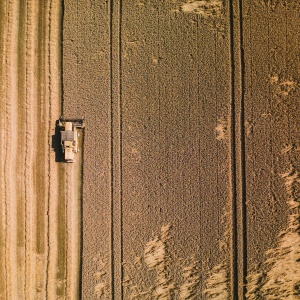
This study argues there is a productivity stability trade-off in agricultural systems and the historic drive for productivity and lack of diversity threatens future crop production stability. It concludes that strategies to promote diverse landscapes and crops are critical to food production.
Abstract
Historically, humans have managed food systems to maximize productivity. This pursuit has drastically modified terrestrial and aquatic ecosystems globally by reducing species diversity and body size while creating very productive, yet homogenized, environments. Such changes alter the structure and function of ecosystems in ways that ultimately erode their stability. This productivity–stability trade-off has largely been ignored in discussions around global food security. Here, we synthesize empirical and theoretical literature to demonstrate the existence of the productivity–stability trade-off and argue the need for its explicit incorporation in the sustainable management of food systems. We first explore the history of human management of food systems, its impacts on average body size within and across species and food web stability. We then demonstrate how reductions in body size are symptomatic of a broader biotic homogenization and rewiring of food webs. We show how this biotic homogenization decompartmentalizes interactions among energy channels and increases energy flux within the food web in ways that threaten their stability. We end by synthesizing large-scale ecological studies to demonstrate the prevalence of the productivity–stability trade-off. We conclude that management strategies promoting landscape heterogeneity and maintenance of key food web structures are critical to sustainable food production.
Reference
Gutgesell, M., McCann, K., O’Connor, R. et al. The productivity–stability trade-off in global food systems. Nat Ecol Evol (2024). https://doi.org/10.1038/s41559-024-02529-y
Read more here. See also the TABLE explainer, What is environmental efficiency and is it sustainable?







Post a new comment »